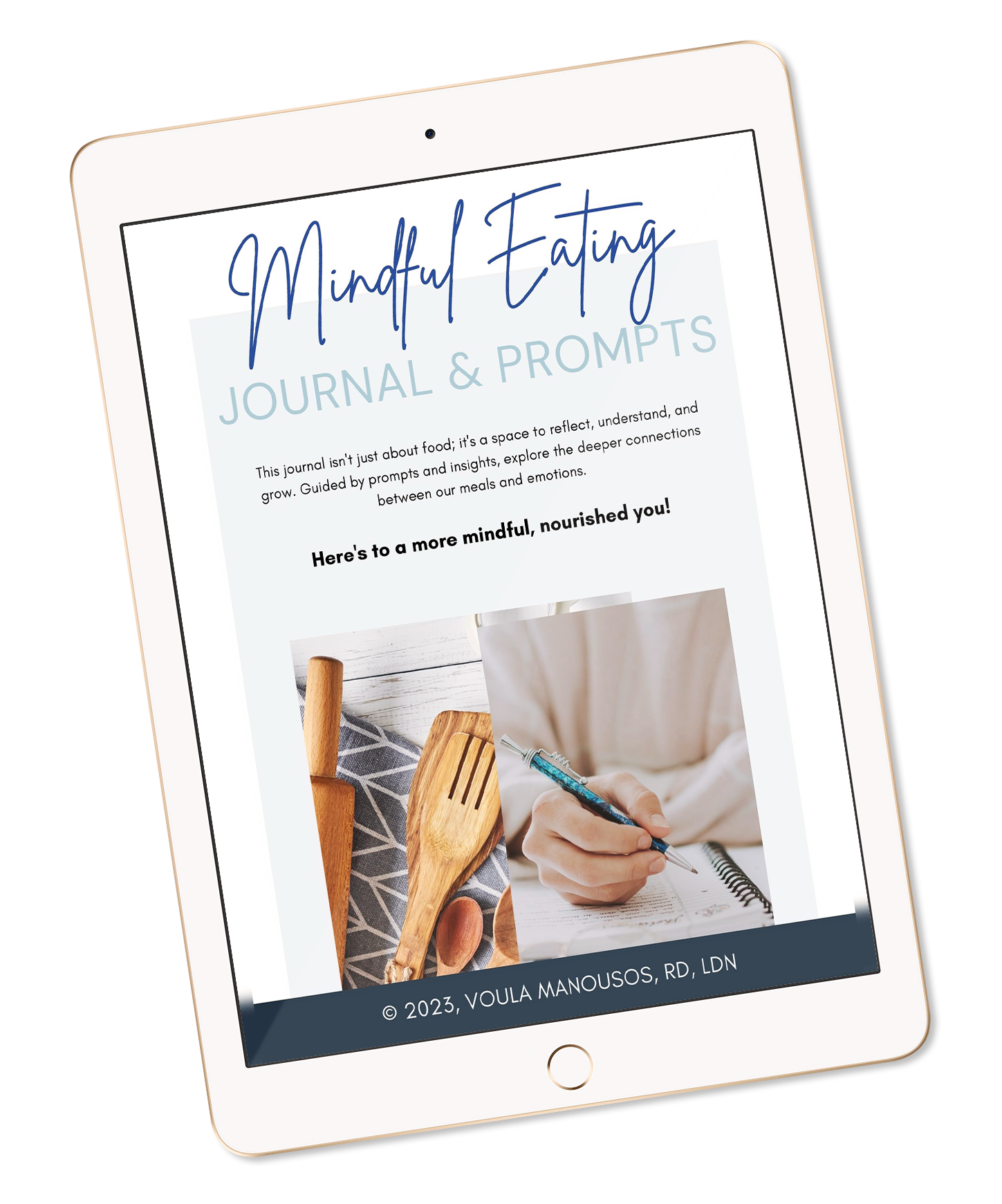What causes sugar cravings? As a dietitian, I’ve had countless clients tell me, “I just can’t stop craving sugar!” Sound familiar? You’re not alone and it’s not just about willpower.
Sugar cravings are biological, emotional, and habitual. Factors like stress, lack of sleep, and not eating enough all contribute to craving sugary foods. They can also be exacerbated by hormonal imbalances, gut infections, and adrenal fatigue.
But here’s the good news: these cravings are manageable. In this post, we’ll break down the real reasons behind your sweet tooth and how to manage them effectively.
Craving Sugar: Why Does It Happen?
Sugar cravings are signals from your body indicating various underlying factors. Let’s dig in to the top three reasons:
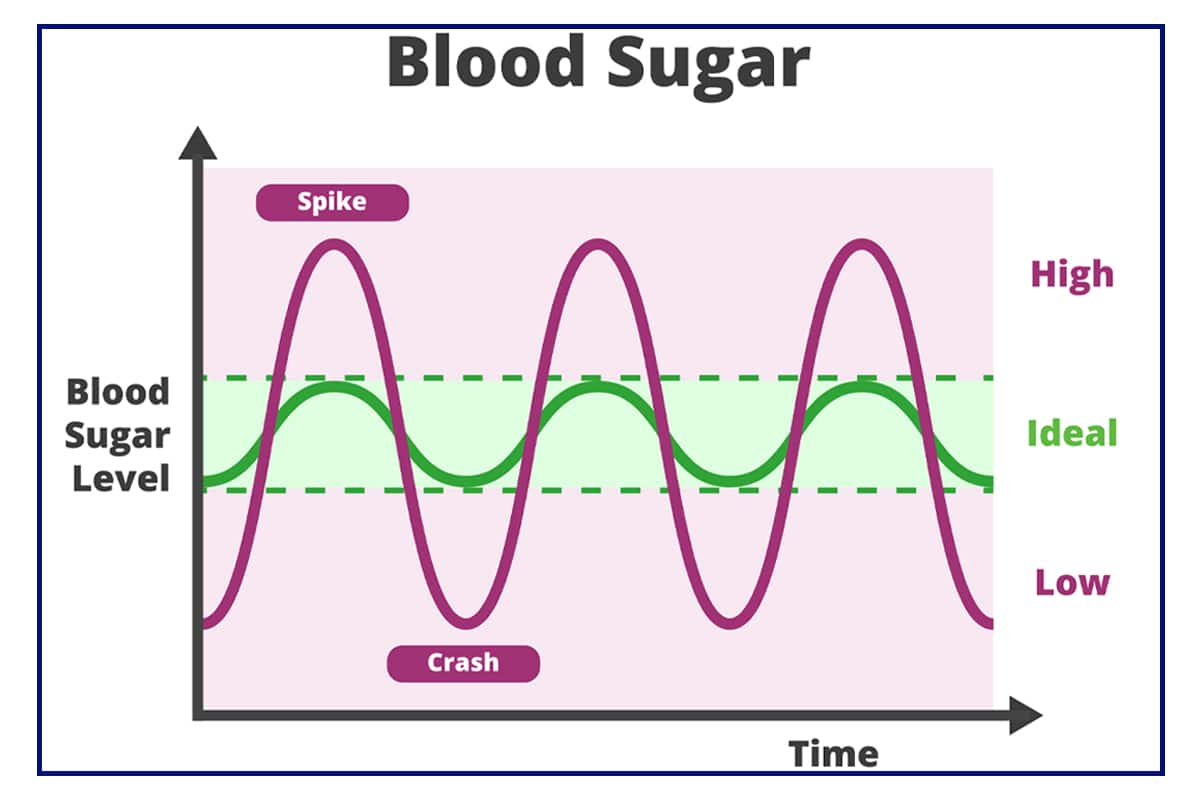
Blood Sugar Fluctuations (Spikes & Crashes)
When you consume foods high in refined sugars or simple carbohydrates, your blood sugar levels spike rapidly. In response, your body releases insulin to manage the glucose, which can lead to a quick drop in blood sugar levels (also known as a crash). This crash often triggers cravings for more sugar as your body attempts to stabilize energy levels.
Nutrient Deficiencies
Your body might crave sugar when it’s lacking essential nutrients:
Magnesium: A deficiency can lead to craving sugary foods, especially chocolate, as your body looks for quick energy sources.
Chromium: This mineral helps regulate blood sugar, and low levels might prompt sugar cravings.
Zinc: Essential for insulin regulation, a deficiency can lead to low energy levels and increased sugar cravings.
Emotional and Habit-Based Triggers
Stress, boredom, or certain routines can lead to sugar cravings:
- Stress: Elevated cortisol levels during stress can increase appetite and cravings for high-sugar foods.
- Habits: Regularly consuming sweets at specific times can condition your body to expect sugar, leading to habitual cravings.
Understanding these triggers is the first step toward managing sugar cravings effectively.
Food Cravings vs. Sugar Addiction: Is There a Difference?
Many of my clients are worried about being “addicted” to sugar. In most cases, it’s a combination of habit, blood sugar imbalances, and emotional eating rather than true addiction.
The Dopamine Connection: Why Sugar Feels Good Temporarily
Consuming sugar triggers the release of dopamine, the brain’s “feel-good” neurotransmitter. This response provides temporary pleasure, encouraging repeated behavior. However, unlike substances such as heroin, sugar’s effect on dopamine is less intense.
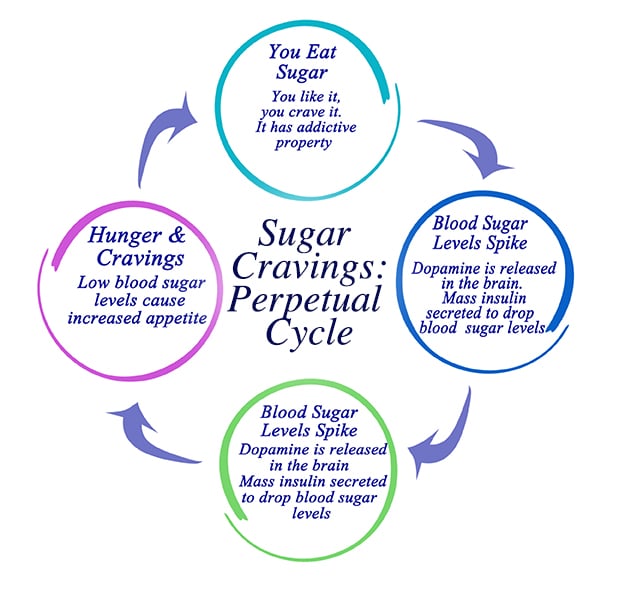
True Addiction vs. Cravings: Understanding the Difference
While sugar activates reward pathways in the brain, labeling it as an addiction is debatable. Some studies suggest that sugar can elicit neurobiological changes similar to those seen in drug addiction, but this concept remains controversial.
Understanding these distinctions can empower you to address sugar cravings effectively.
Want to take action today? Grab my free PDF: “5 Steps You Can Take Today to Overcome Sugar Cravings“
Blood Sugar and Sugar Cravings: The Connection
Unstable blood sugar levels play a significant role in triggering sugar cravings. Here’s how:
How Unstable Blood Sugar Fuels Sugar Cravings
When your blood sugar levels fluctuate rapidly, it can lead to increased hunger and cravings for sugary foods.
Factors Contributing to Blood Sugar Instability
Several lifestyle habits can cause these fluctuations:
- Skipping Meals: Not eating regularly can lead to low blood sugar levels, prompting your body to seek quick energy sources like sugary snacks.
- Refined Carbohydrates: Foods high in refined carbs can cause rapid spikes and subsequent crashes in blood sugar, leading to cravings.
- Lack of Protein and Healthy Fats: Without adequate protein and fats, meals may not sustain energy levels, resulting in quicker returns of hunger and sugar cravings.
Signs of Blood Sugar Crashes
Recognizing the symptoms of a blood sugar crash can help you address them proactively:
- Fatigue: Feeling unusually tired after meals.
- Dizziness: Light-headedness or unsteadiness.
- Sudden Hunger: An abrupt, intense need to eat, especially for sweets or carbs.
- Mood Swings: Irritability or sudden changes in mood.
These symptoms often lead individuals to crave carbohydrates or sweets to “fix” the crash.
Is Craving Sugar a Sign of Diabetes?
Occasional sugar cravings are common and not necessarily indicative of diabetes. However, if you experience frequent, intense hunger combined with other symptoms such as:
- Extreme Thirst: Constant need to drink water.
- Fatigue: Persistent tiredness unrelated to activity levels.
- Frequent Urination: Needing to urinate more often than usual.
These could be signs of blood sugar issues, including diabetes.
When to See a Doctor vs. Normal Cravings
Consult a healthcare professional if:
- You notice a combination of the symptoms mentioned above.
- Symptoms persist despite dietary and lifestyle adjustments.
For typical, occasional sugar cravings, eating balanced meals and regular eating schedules can help manage them effectively.
Related: Bust the Sugar Cravings!
Is There a Vitamin Deficiency That Causes Sugar Cravings?

Vitamin and mineral deficiencies can play a role in sugar cravings. Here’s how certain nutrients are linked to these cravings:
Key Nutrients Linked to Sugar Cravings
- Magnesium: This mineral supports blood sugar regulation and energy production. A magnesium deficiency can lead to increased sugar cravings as the body seeks quick energy sources.
- Chromium: Essential for insulin’s action, chromium helps maintain normal blood sugar levels. Low levels of chromium may contribute to sugar cravings.
- B Vitamins: Vital for energy metabolism, B vitamins help convert dietary nutrients into usable energy. Low levels can lead to fatigue, prompting sugar cravings for quick energy. Additionally, B vitamins, particularly B1, B3, B6, and B12, may help reduce stress levels, which can influence cravings.
- Zinc: This mineral supports insulin function. A deficiency can impair insulin’s effectiveness, potentially leading to sugar cravings.
Does Magnesium Help with Sugar Cravings?
Yes, magnesium plays a significant role in insulin function and blood sugar regulation. Adequate magnesium levels can help reduce sugar cravings.
Foods Rich in Magnesium
Incorporating magnesium-rich foods into your diet can help manage sugar cravings:
- Dark Chocolate: Contains high levels of magnesium.
- Nuts and Seeds: Almonds, cashews, and pumpkin seeds are excellent sources.
- Leafy Greens: Spinach and kale are rich in magnesium.
Including these foods in your diet can support overall health and help manage sugar cravings.
Supplements That Help Curb Sugar Cravings
Supplements can play a role in managing sugar cravings by supporting blood sugar regulation and reducing the desire for sweets.
Here’s a closer look at some effective options:
- Berberine
Berberine is a natural compound found in several plants and has been shown to support insulin sensitivity and blood sugar control, which may help reduce sugar cravings.
- Chromium
Chromium is an essential mineral that improves insulin’s action, aiding in blood sugar regulation. Supplementing with chromium may help curb sugar cravings by improving glucose metabolism.
- L-Glutamine
L-Glutamine, an amino acid, supports brain function and may help reduce sugar cravings. Some individuals have reported a decrease in cravings after supplementing with L-Glutamine.
- Gymnema Sylvestre
Gymnema Sylvestre is an herb known for its ability to decrease the desire for sugar by reducing the sweetness perception of foods. This effect can help in managing sugar cravings effectively.
While supplements can be helpful tools in managing sugar cravings, they are not standalone solutions.
A balanced diet rich in whole foods, regular physical activity, and healthy lifestyle habits are essential components of effective craving management.
If you’re thinking about adding supplements to your routine but aren’t sure where to start, ask your healthcare practitioner or doctor if supplements are right for you.
How to Curb Sugar Cravings Naturally
Managing sugar cravings doesn’t mean you have to eliminate sugar entirely from your diet. Instead, focusing on balanced nutrition and lifestyle habits can help reduce these cravings naturally. Here’s how:

- Eat Balanced Meals
Choosing meals that include a mix of protein, fiber, and healthy fats helps maintain stable blood sugar levels, reducing the likelihood of sugar cravings.
- Plan Healthy Snacks
Keeping nutritious snacks on hand can prevent hunger-induced sugar cravings. Consider options like:
- Nuts and Seeds: Rich in protein and healthy fats.
- Greek Yogurt: Provides protein and probiotics.
- Hard-Boiled Eggs: A convenient source of protein.
These choices can help keep you satisfied between meals.
- Stay Hydrated
Sometimes, feelings of hunger or sugar cravings are actually signs of dehydration. Drinking water throughout the day can help manage these cravings.
- Prioritize Sleep and Manage Stress
Lack of sleep and high stress levels can disrupt hormones that regulate appetite, leading to increased sugar cravings. Ensuring adequate rest and employing stress-reduction techniques can be beneficial.
Want a step-by-step plan? Download my free PDF: “5 Steps You Can Take Today to Overcome Sugar Cravings”
These simple shifts can make a big difference. Less sugar drama, more steady energy, and meals that actually keep you full and satisfied.
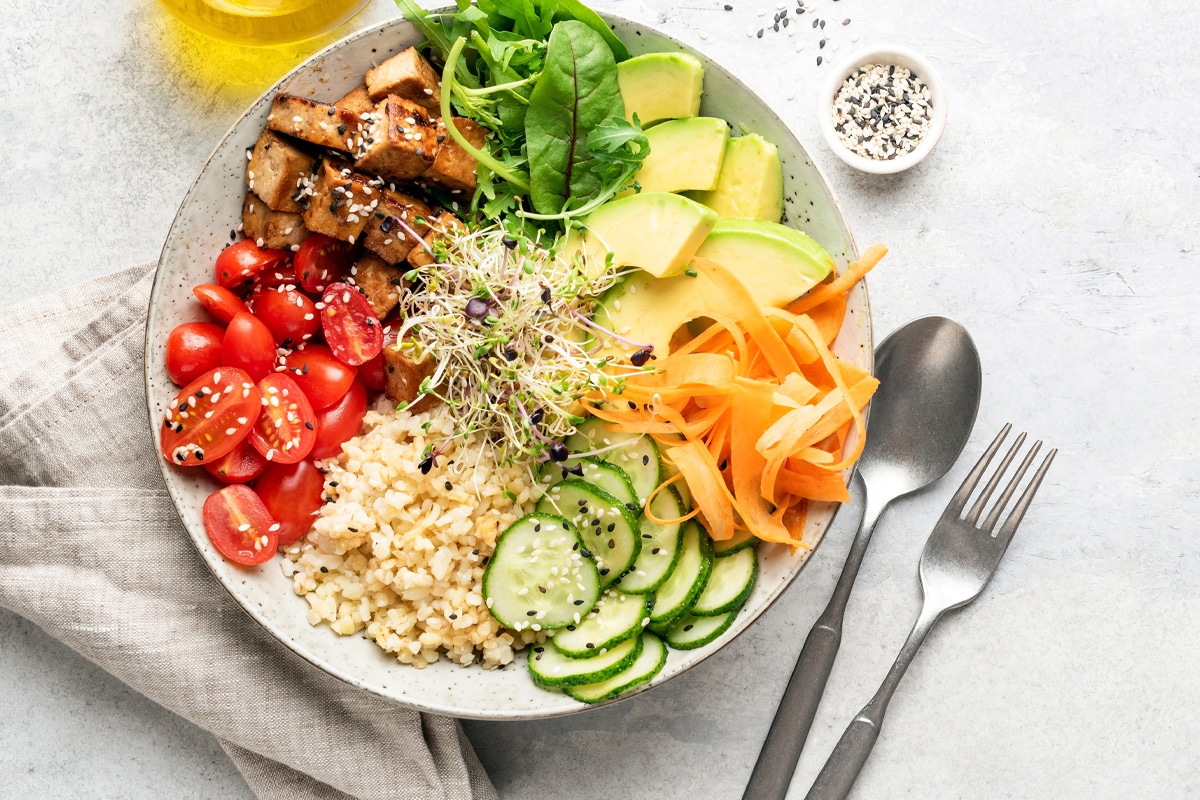
Crave Sweets? Here’s What to Eat Instead
Craving sweets is normal, but reaching for sugary snacks isn’t the only option.
Here are some satisfying alternatives that can help curb those sugar cravings:
Foods That Help Stop Sugar Cravings
- Dark Chocolate: Opt for pure dark chocolate with at least 70% cocoa. It’s lower in sugar and high in magnesium, which can help reduce cravings.
- Berries: Naturally sweet yet high in fiber, berries like strawberries, blueberries, and raspberries provide sweetness without causing blood sugar spikes.
- Nuts and Seeds: Packed with healthy fats and protein, nuts and seeds can keep you feeling full and reduce the desire for sugary snacks.
- Greek Yogurt: Rich in protein and probiotics, Greek yogurt supports gut health and provides a creamy alternative to sugary treats.
- Protein-Rich Snacks: Foods like nuts , seeds, legumes, and cheese can stabilize blood sugar levels, helping to prevent cravings.
Healthy Swaps for Common Sugar Cravings
- Soda: Replace sugary sodas with sparkling water infused with lemon or other fruits for a refreshing, low-sugar beverage.
- Candy: Satisfy your sweet tooth with a combination of dark chocolate and nuts, offering sweetness along with beneficial nutrients.
- Ice Cream: Enjoy Greek yogurt topped with berries and a drizzle of honey as a nutritious and delicious alternative to traditional ice cream.
These simple swaps give you the sweet fix you’re looking for without sending your energy, or your goals, off track.
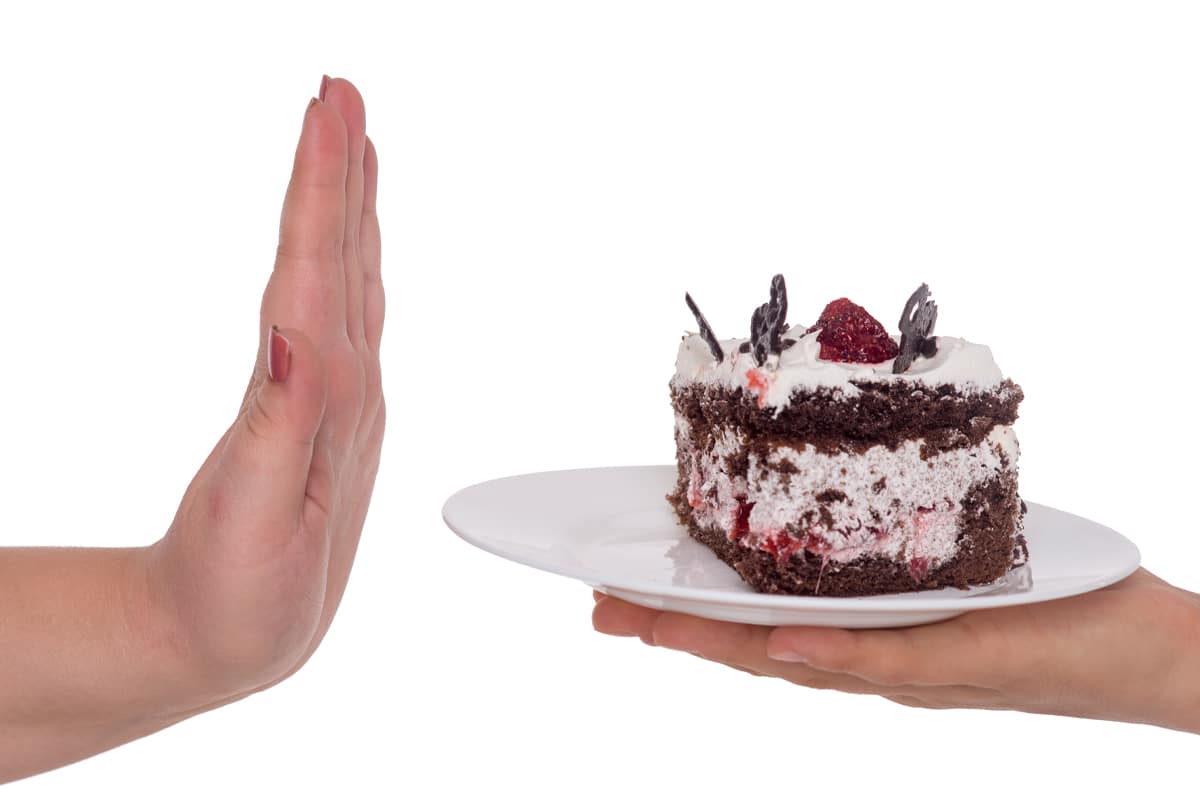
Emotional Eating and Sugar Cravings
I see it all the time. Stress hits, and suddenly you’re knee-deep in a bag of cookies wondering what just happened.
Sugar cravings during tough moments aren’t just “bad habits.” They’re your body (and brain) trying to cope.
So let’s talk about why it happens and what you can do to handle it without raiding the snack drawer.
Why We Crave Sugar When Stressed
- Cortisol’s Role: When you’re stressed, your body releases cortisol, a hormone that increases appetite and can drive cravings for calorie-dense ‘comfort’ foods, particularly those high in sugar and fat.
- Dopamine Boost: Sugar provides a temporary increase in dopamine, the brain’s “feel-good” neurotransmitter, which can momentarily alleviate stress or negative emotions.
Breaking the Cycle
- Mindful Eating: Practicing mindfulness while eating can help you become more aware of your hunger and fullness cues, reducing the likelihood of using food to cope with emotions.
- Identify Emotional Triggers: Recognize situations or feelings that lead to emotional eating. By understanding your triggers, you can develop alternative strategies for managing your emotions.
- Alternative Dopamine Sources: Engage in activities that naturally boost dopamine levels, such as exercise, listening to music, or journaling. These can provide pleasure and stress relief without relying on sugar.
When you start to understand what’s really driving those cravings like stress, boredom, or that 3pm slump, you can actually do something about it.
You can choose tools and strategies that help you feel better without reaching for the sugar every time life gets chaotic.
The Hidden Dangers of Added Sugar
Let’s be real. Added sugar is sneaky.
It shows up in way more places than you’d expect, and once it’s in your system regularly, your taste buds start demanding more.
That’s how it fuels the craving cycle.
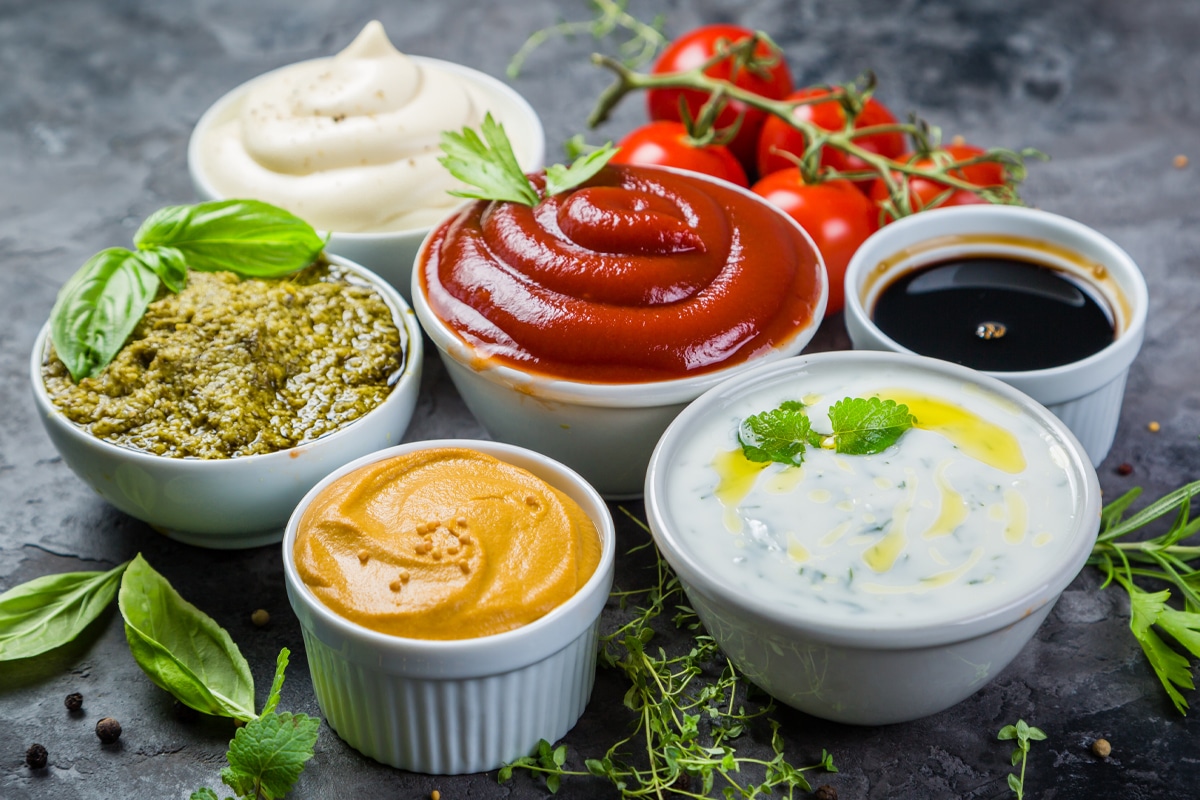
Why added sugar keeps you hooked:
- It literally rewires your taste buds. The more sweet stuff you eat, the more you need to feel satisfied.
- It’s hiding in everyday foods like salad dressings, condiments, pasta sauces, breads, even “healthy” yogurts.
How to cut back without feeling like you’re missing out:
- Start reading labels. Look for sneaky names like cane juice, maltodextrin, or corn syrup. If it sounds like science class, it may be sugar in disguise.
- Cook more at home. When you’re in control of the ingredients, you’re not getting sucker-punched by hidden sugar.
This isn’t about cutting everything out. It’s about getting clear on what’s really in your food so you can make choices that leave you feeling good, not sluggish and snacky an hour later.
Take Control of Your Sugar Cravings
Sugar cravings don’t mean you’re “weak” or lack discipline. That’s diet culture garbage. The real deal? Cravings usually come down to blood sugar swings, missing nutrients, and stress you haven’t had time to process.
Here’s what you can do right now:
- Grab a protein-rich snack that includes whole grain carbohydrates. Try natural nut butter, some Greek yogurt, or a handful of almonds paired with your fruit or whole grain crackers. It’ll help stabilize your blood sugar.
- Look at your magnesium and chromium intake. These nutrients play a big role in keeping cravings in check.
- Notice what’s triggering your cravings. Is it stress? Fatigue? Habit? That awareness is everything.
Want a step-by-step guide to get ahead of those cravings? Download my free PDF: “5 Steps You Can Take Today to Overcome Sugar Cravings“ 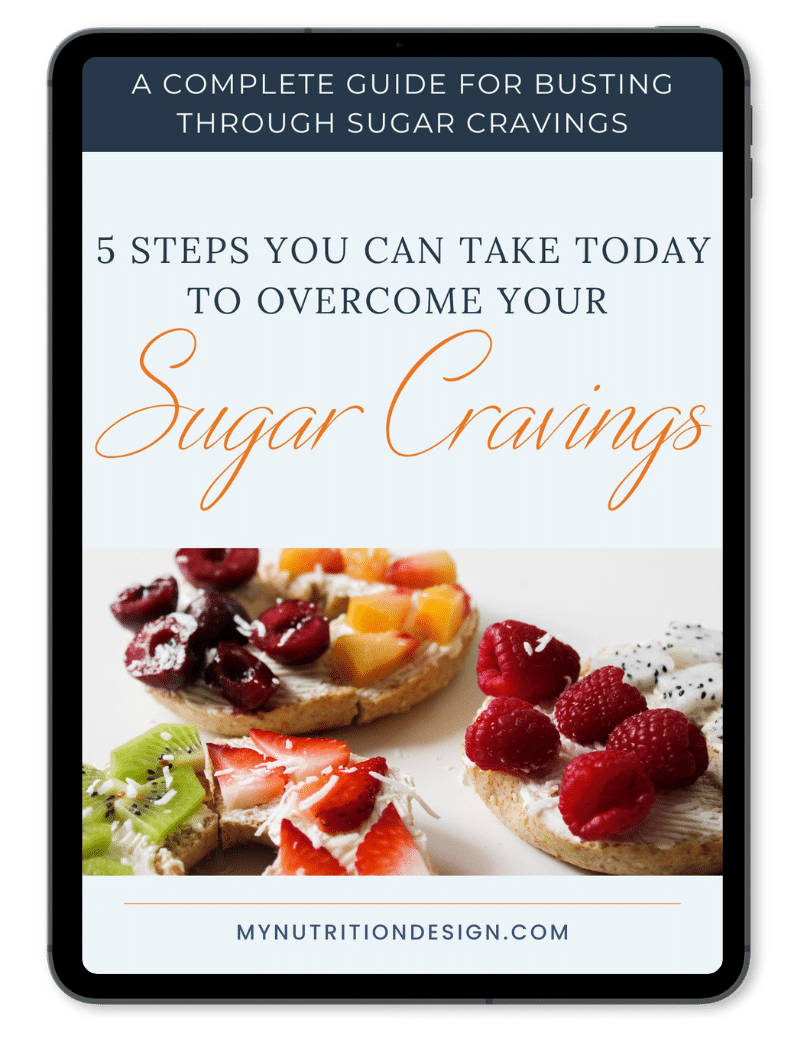
Need Personalized Support? Let’s Tackle Your Sugar Cravings Together!
If sugar cravings keep running the show, whether it’s emotional eating, blood sugar roller coasters, or just not knowing what your body actually needs, let’s change that.
I work with clients every day who want to feel in charge of their eating without restrictive rules or guilt.
As a registered dietitian, I’ll help you build a plan that fits your life, your body, and your goals.
Ready to stop guessing? Book a free discovery call and let’s map out your next step.





